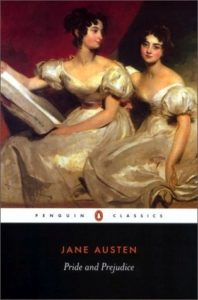Teaching Story Transitions 1: Mediating Extremes
 Summer is here, school work is over, and rest has begun. Most children, however, will not rest from enjoying stories this summer. They will hear about new movies, television shows, or even books. And with each new offering you, as a parent, may consider two choices:
Summer is here, school work is over, and rest has begun. Most children, however, will not rest from enjoying stories this summer. They will hear about new movies, television shows, or even books. And with each new offering you, as a parent, may consider two choices:
- You may take a mostly hands-off approach, letting your children read or watch whatever they like. Or, at best, you may rely on others (other children’s parents, librarians, friends, or Christian leaders) to let you know if a story is okay.
- You may apply arbitrary, legalistic boundaries to your child’s story choices.
As a Christian, father, and pastor of a Baptist church, I definitely don’t encourage any kind of hands-off approach about what your children read or watch. However, I also do not want to encourage applying arbitrary legalistic boundaries to your children’s media choices.
Option 1: Fuzzy boundaries
I say this from experience. When I was growing up, I attended a Southern Baptist church. At this particular church, other youths and I were told not to listen to any secular music or watch any R-rated movies. We even had random youth events where the youth would burn CDs of secular music. And by that I don’t mean they were making copies. They literally burned the discs. We would have a “CD burning party,” then in a few weeks, all the youths would buy more secular CDs. To this day I’m not sure of the spiritual value of this exercise.
Throughout all of these practices, the “rules” were hanging in midair. None of the youth or adults that taught us these standards practiced them on a consistent basis. As a result, all of us went back and forth between liberalism and legalism, with no personal discernment.
Of course, this is not limited to my experience, or to questions about music CDs. Arbitrary legalistic boundaries abound in evangelical Christianity when it comes to enjoying media and storytelling. People tell themselves, other Christians, or their children: “you can watch this, but you can’t watch this.” But what ultimate standard is there for such discernment?
Often, the answer is simply that one’s own conscience is arbitrarily forced on others.
 One example is Todd Friel (whom I respect), host of Wretched Radio. In one radio episode, dated July 19, 2011, he condemned any Christian enjoyment of the Harry Potter movie and book series, while speaking positively of the novel Pride and Prejudice. What was his basis to condemn Christians who enjoy Harry Potter? He said, “It’s a sin. Deuteronomy 18. God hates that stuff. I’m not going to ingest that stuff, nor am I going to let my kids [ingest it].”
One example is Todd Friel (whom I respect), host of Wretched Radio. In one radio episode, dated July 19, 2011, he condemned any Christian enjoyment of the Harry Potter movie and book series, while speaking positively of the novel Pride and Prejudice. What was his basis to condemn Christians who enjoy Harry Potter? He said, “It’s a sin. Deuteronomy 18. God hates that stuff. I’m not going to ingest that stuff, nor am I going to let my kids [ingest it].”
Is Friel correct? Yes and no. Harry Potter indeed contains evil elements, and these evil elements must be rejected. But where he is wrong is in the fact that Pride and Prejudice also contains evil elements that God hates! Anyone reading the Jane Austen classic novel (or watching the popular 1995 BBC miniseries starring Colin Firth and Jennifer Ehle) will see this. In fact, the story itself is named after two very common but dangerous sins, which the Bible condemns, but which the main characters (at least at first) practice!
 This is what I mean by arbitrary legalistic boundaries. If one sins by enjoying Harry Potter, then one also sins by enjoying Pride and Prejudice. If a little evil corrupts the whole form of story, and the witchcraft corrupts Harry Potter, then disobeying the command to love one’s neighbor as oneself in Pride and Prejudice corrupts the whole as well.
This is what I mean by arbitrary legalistic boundaries. If one sins by enjoying Harry Potter, then one also sins by enjoying Pride and Prejudice. If a little evil corrupts the whole form of story, and the witchcraft corrupts Harry Potter, then disobeying the command to love one’s neighbor as oneself in Pride and Prejudice corrupts the whole as well.
Furthermore, in the same audio clip, Friel rejects the hero Harry Potter as a Christ-figure because Harry is sinful. Of course, Friel is correct that the character of Harry Potter is sinful. But so is every other Christ-figure in Scripture. Is there any Christ-figure in Scripture who wasn’t a sinner? Think of King David, the main Christ-figure of the Old Testament. He committed the sins of pride, deception, adultery, murder, etc. Does this disqualify him as a Christ-figure? No.
So here they are again: boundaries that are legalistic, arbitrary, and ultimately hypocritical. No one consistently applies these standards for engaging storytelling books or movies.
But the cure is not simply applying our strict standards more consistently, such as rejecting Pride and Prejudice just as firmly as we reject Harry Potter. Rather, Christians must understand that God hates legalism as much as He hates liberalism. Legalism and liberalism are two sides of the same coin. Christians should also be encouraged that we do not answer to men for our story enjoyments, but to God alone — assuming you are loving God and your neighbor through your enjoyments.
Option 2: Few to no boundaries
The other common practice in evangelical Christianity is to drink deeply of all forms of media. Often, well-meaning Christians see books and movies as “neutral.” They may say, “It’s just a story.” They believe that seeing or reading that story is only entertainment, nothing more and nothing less — as if this action, apart from any other practice, is somehow outside of the realms of righteousness and unrighteousness.
But the apostle Paul says, “whether you eat or drink, or whatever you do, do all to the glory of God” (1 Cor. 10:31). Eating and drinking are the basic needs of all humans. From the foundation of human existence to the complexities of living in the twenty-first century, God expects Christians to live every second of every day in such a way that glorifies Him. Enjoying stories in books and movies does not escape this Biblical requirement.
Biblical balance: discernment and enjoyment
The answer to these two extremes of Christian story participation is to enjoy God through enjoying man’s stories. Our goal of participating in stories is not the absence of discernment or the mere enjoyment of “neutral” entertainment, but to glorify the Lord.
How do we do this? As with any spiritual habit, this takes study, practice, and help from others. I’ll spend this whole series exploring the concept. But I can summarize it here.
First, to glorify the Lord as we read or watch stories, we must learn to spot, and reject, Satan’s fingerprints. Second, we must learn to discern God’s fingerprints — the things that reflect His truths and beauties — and connect them to Christ’s creating, sustaining, and redeeming work.
For example, whether one enjoys Harry Potter or Pride and Prejudice, we must reject all of Satan’s lies in those stories. At the same time, we must also extract all that God has created true, and connect it to God through Christ. We must recognize truth, and bring more truth from the Word of God to all stories for the purpose of enjoying the Lord.
One day in the New Heavens and New Earth, we will enjoy the Lord without needing to fear Satan’s lies. There, we will always and forever participate in stories unto the glory of God. Of course today we live in this old Earth and old Heavens, but we are still citizens of the New ones, of that coming Kingdom. Our true citizenship is there. We must live that way now. And how we enjoy stories in this world is one way we either admit or deny that we are citizens of the New Jerusalem.
If we must live in an evil world, we must answer the question: “How shall we live unto the glory of God?” The answer is neither legalism nor liberalism, but the consistent application of a biblical worldview. This is God’s world, and all humans admit they live in His world. As we participate in stories, let us discern where they exhibit His fingerprints. Then, let us take these fingerprints and connect them to God through Christ as an act of worship.
For you, this may mean paying more attention to stories. First, you might start thinking about what stories you read or watch, and repenting of your sinful motives for doing so. Then, second, you might begin watching your children’s story-enjoyments more carefully.
Or your response to these truths may be more like mine: learning not to fear stories or to draw arbitrary legalistic boundaries, but to discern and enjoy stories for God’s glory.
 As I have studied Scripture more and began to understand how all of creation, including humanity, serves to send humans running to God in worship, I have sought to participate in storytelling media for this purpose. Through over ten years of ministry, I learned that most Christians, regardless of age, are ill-prepared to live in a media-filled world.
As I have studied Scripture more and began to understand how all of creation, including humanity, serves to send humans running to God in worship, I have sought to participate in storytelling media for this purpose. Through over ten years of ministry, I learned that most Christians, regardless of age, are ill-prepared to live in a media-filled world.
To help remedy this problem, I wrote a book titled The Harry Potter Bible Study: Enjoying God Through the Final Four Harry Potter Movies. Its purpose is to help Christians exercise discernment as they view the final four Harry Potter movies. Yet the book also gives a blueprint for basic Christian interaction with any other stories unto the glory of God.
The principles in that book helped me to not only enjoy God through stories, but also to enjoy God through all avenues of life. An 85-year-old lady at my church, a lady who has been a Christian twice as long as I’ve been alive, read the book and rejoiced over enjoying God through all of life. It’s a tragedy that such a senior saint had never been taught that “whether you eat or drink, or whatever you do, do all to the glory of God” (1 Cor. 10:31).
Don’t force your hearers or children to wait until the New Heavens and Earth to enjoy God throughout life, and particularly in what media and stories they enjoy! Instead, start now.
To help, I’m writing this new Speculative Faith series: Teaching Story Transitions.
In part 2, we will explore these themes further. First, why do Christians often go from teaching “children, be sheltered,” directly to “parents, shelter your children”? What does the Bible say about what stages come in between? How might parents guide their children to discern and enjoy stories with God’s help?
(Editing and additional writing by E. Stephen Burnett.)










































